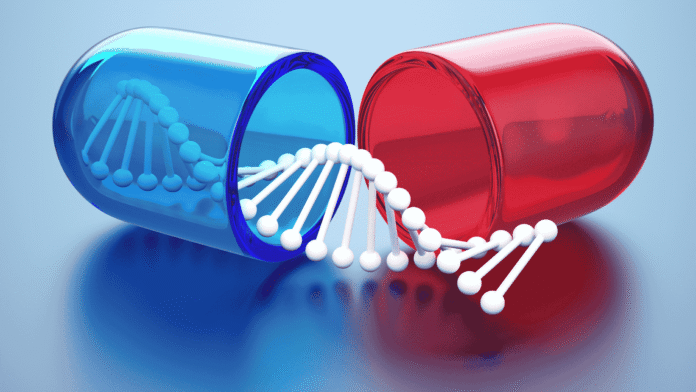Infections in the private parts, whether in men or women, are a common yet sensitive issue that can cause discomfort, pain, and emotional distress. These infections can occur in the genital area and can result from various causes, including bacteria, fungi, viruses, or other pathogens. Understanding the symptoms, causes, and the best medicine for infections in the private parts is crucial for effective treatment and quick recovery. This blog post will guide you through the various types of infections that affect the genital region and provide information on the most common medications and treatments available.
What Causes Infection in Private Parts?
Infections in the genital region can occur due to several factors, including poor hygiene, unprotected sexual activity, allergies, and certain medical conditions. The most common types of infections in the private parts include:
-
Bacterial Vaginosis (BV) – A bacterial infection that affects women, caused by an imbalance in the natural bacteria of the vagina.
-
Yeast Infections (Candidiasis) – Caused by an overgrowth of the fungus Candida, leading to itching, swelling, and discomfort in the genital area.
-
Urinary Tract Infections (UTIs) – Infections that affect the urinary system, often involving the urethra and bladder, and can spread to the reproductive parts.
-
Sexually Transmitted Infections (STIs) – Infections such as chlamydia, gonorrhea, and syphilis are caused by bacteria and viruses passed through sexual contact.
-
Herpes Simplex Virus (HSV) – A viral infection that causes painful sores around the genital area.
-
Trichomoniasis – A parasitic infection caused by the protozoan Trichomonas vaginalis.
Common Symptoms of Infection in the Private Parts
Symptoms of infections in the private parts can vary based on the type and severity of the infection. However, common symptoms may include:
-
Itching, burning, or swelling in the genital area
-
Unusual discharge (white, green, or yellow)
-
Painful urination or frequent urge to urinate
-
Pain during intercourse
-
Redness or sores in the genital area
-
Odor from the genital region (especially in BV)
Best Medicines for Infection in Private Parts
When it comes to treating infections in the private parts, the treatment will depend on the underlying cause of the infection. Below are some of the most commonly recommended medications for different types of infections.
1. Antibiotics for Bacterial Infections
For bacterial infections like bacterial vaginosis (BV) or chlamydia, antibiotics are the primary treatment. Here are the most commonly prescribed antibiotics:
-
Metronidazole (Flagyl): Often used to treat bacterial vaginosis and trichomoniasis. This antibiotic is typically available in oral form or as a topical gel.
-
Clindamycin: Another antibiotic used to treat bacterial vaginosis, it is often available in both oral and topical forms.
-
Azithromycin (Zithromax): Commonly prescribed for sexually transmitted infections such as chlamydia.
-
Doxycycline: Used to treat a variety of bacterial infections, including gonorrhea and chlamydia.
Important: If you are diagnosed with a bacterial infection, it’s essential to complete the entire course of antibiotics prescribed by your doctor, even if symptoms subside before finishing the medication.
2. Antifungal Medication for Yeast Infections
Yeast infections, primarily caused by an overgrowth of Candida, can be treated with antifungal medications. Common treatments include:
-
Fluconazole (Diflucan): An oral antifungal medication that works by killing the fungus responsible for the infection. A single dose is often effective, though your doctor may recommend a longer course depending on the severity.
-
Clotrimazole: Available in cream or suppository form, this antifungal medication is often recommended for vaginal yeast infections.
-
Miconazole (Monistat): Similar to clotrimazole, miconazole is available as a cream or suppository and is commonly used to treat vaginal yeast infections.
In addition to medications, maintaining proper hygiene and wearing loose-fitting clothing can help prevent yeast infections from reoccurring.
3. Antiviral Medications for Herpes
For viral infections like herpes simplex virus (HSV), antiviral medications can help manage symptoms, reduce the frequency of outbreaks, and prevent the spread of the virus. The most common medications include:
-
Acyclovir (Zovirax): A widely used antiviral medication to treat genital herpes and reduce the duration and severity of outbreaks.
-
Valacyclovir (Valtrex): A more potent form of acyclovir that is often prescribed for genital herpes. It can help shorten the duration of an outbreak and reduce transmission risk.
-
Famciclovir (Famvir): Another antiviral medication that is effective against genital herpes outbreaks.
Antiviral medications are most effective when started as soon as symptoms appear, so early intervention is important for managing herpes infections.
4. Treatment for Sexually Transmitted Infections (STIs)
STIs require specific treatment based on the type of infection. Some common treatments for STIs include:
-
Penicillin: Often used to treat syphilis, penicillin is typically administered through an injection, and a single dose is usually sufficient for early-stage syphilis.
-
Ceftriaxone: This antibiotic is commonly used to treat gonorrhea, usually in combination with azithromycin to address potential co-infection with chlamydia.
-
Doxycycline: Used for the treatment of chlamydia, doxycycline is commonly prescribed for uncomplicated infections.
It is crucial to consult a healthcare provider for proper STI diagnosis and treatment. Additionally, it’s important to inform sexual partners about the infection to prevent further spread.
5. Urinary Tract Infections (UTIs)
For UTIs, antibiotics are the standard treatment. Common medications include:
-
Nitrofurantoin (Macrobid): Commonly prescribed for uncomplicated urinary tract infections.
-
Trimethoprim-sulfamethoxazole (Bactrim): This combination antibiotic is frequently used to treat UTIs.
-
Ciprofloxacin: An antibiotic used for more severe UTIs or infections that do not respond to other medications.
Drinking plenty of water and maintaining proper hygiene is essential in preventing and managing UTIs.
When to Seek Medical Help
If you experience persistent or severe symptoms of infection in the private parts, such as excessive pain, fever, or unusual discharge, it is essential to seek medical attention promptly. Early diagnosis and treatment are key to preventing complications and ensuring quick recovery.
Prevention Tips for Private Parts Infections
To avoid infections in the private parts, consider the following prevention tips:
-
Practice good hygiene by cleaning the genital area regularly with mild soap and water.
-
Wear breathable, cotton underwear and avoid tight-fitting clothing to reduce moisture buildup.
-
Always use protection during sexual activity to prevent the spread of sexually transmitted infections (STIs).
-
Stay hydrated and urinate frequently to flush bacteria out of the urinary tract.
-
Avoid using scented soaps or feminine hygiene products that can irritate the sensitive genital area.
Conclusion: Best Medicine for Infection in the Private Parts
Infections in the private parts can be uncomfortable and concerning, but with the right treatment and care, they can be effectively managed and treated. Whether you’re dealing with bacterial vaginosis, yeast infections, STIs, or UTIs, a variety of medications are available to target the cause and provide relief. It’s essential to consult with a healthcare provider for a proper diagnosis and follow the prescribed treatment plan to ensure a full recovery.
If you suspect you have an infection, don’t hesitate to seek medical advice to determine the most appropriate course of treatment. Taking preventive steps, maintaining good hygiene, and practicing safe sexual health can go a long way in keeping infections at bay.




